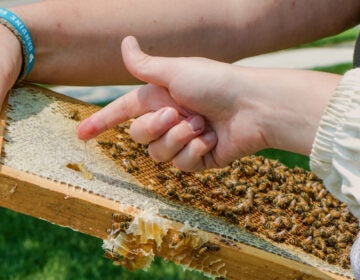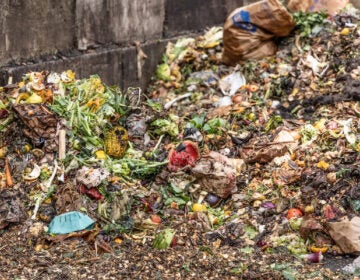Managing the Challenges of Motherhood
Moms are under constant pressure to do it all — and it takes a toll on their well-being. We explore the myth of the perfect mom.
Listen 49:35
If you look around for Mother’s Day gifts, you’ll probably see stuff like bubble baths, spa days, yoga classes — a whole slew of things aimed at promoting “self-care” for tireless (but actually exhausted) moms.
But for a lot of overwhelmed mothers, self-care becomes just another box to tick — another item on an endless to-do list that never gets finished. The demands of modern motherhood can be overwhelming: Moms are expected to do it all and do it perfectly — even if that means compromising their own well-being.
On this episode, we talk about the challenges of motherhood, and how moms can find the space and time to take care of themselves. We talk with a perinatal psychiatrist about the contradictory demands of motherhood, and why bubble baths aren’t the answer; hear about an initiative to help mothers dealing with postpartum depression; and learn about the unexpected ways that motherhood changes the brain.
Also heard on this week’s episode:
- We talk with perinatal psychiatrist Pooja Lakshmin about the growing toll she’s seen motherhood take on new moms, the pressure of changing social expectations, and how boundaries — not bubble baths — can create a path to true well-being. Her new book is called “Real Self-Care: A Transformative Program for Redefining Wellness (Crystals, Cleanses, and Bubble Baths Not Included).”
- When health-and-science journalist Chelsea Conaboy first became a mother, she was surprised to find that the maternal instinct she’d heard about for years wasn’t kicking in. That led Conaboy to investigate some of our long-held beliefs about motherhood — and how they influence our ways of thinking and behaving. Her new book is called “Mother Brain: How Neuroscience Is Rewriting the Story of Parenthood.”
- When Katie Pratt was 3 years old, she was diagnosed with a Chiari malformation, a rare condition in which the cerebellum bulges through an opening in the skull into the spinal canal. Katie’s mom, Wendy, had a hunch about what the solution would be — but it wasn’t until doctors opened up Katie’s skull that they discovered she was right. Katie interviews her mom about the experience, and her incredible flash of mother’s intuition.
Segments from this episode
WHYY is your source for fact-based, in-depth journalism and information. As a nonprofit organization, we rely on financial support from readers like you. Please give today.






